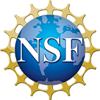
NSF Extends Application Deadline to April 27, 2021, for CSGrad4US: New NSF Fellowship Opportunity for CISE Bachelor’s Degree Holders to Return for PhD
The National Science Foundation (NSF) Computer and Information Science and Engineering (CISE) Directorate has announced the new CSGrad4US Graduate Fellowship program that aims to increase the number of diverse, domestic graduate students pursuing research and innovation careers in the CISE fields. The new fellowship, which will provide 3-year fellowship opportunities for new Ph.D. students in the computing disciplines, was released in response to the increased demand for people with a Ph.D. in computer science (CS), the continued decrease of domestic students pursuing research and completing a Ph.D., and the overall small number of bachelor’s degree recipients in CS pursuing graduate school. In particular, the percentage of domestic Ph.D. students in CS graduating has decreased from 69% in 1985 to 37% in 2018 [1].
Eligibility
CSGrad4US Fellowship applicants must meet the following eligibility criteria:
- Be a U.S. citizen, national, or permanent resident;
- Intend to apply for full-time enrollment in a research-based doctoral degree program in a CISE field (computer science, computer engineering, or information science) no later than Fall 2023;
- Have graduated with a bachelor’s degree in a CISE field between July 1, 2016, and June 31, 2019;
- Not be enrolled in a master’s or doctoral degree-granting program for a CISE
discipline at the time of the application (other than a professional master’s degree
program); and - Have never previously accepted an NSF Graduate Research Fellowship.
NSF seeks candidates from a broad array of backgrounds and strongly encourages women, African Americans, Hispanics, American Indians, Alaska Natives, Native Hawaiians, Native Pacific Islanders, and persons with disabilities to apply.
Timeline
The Application deadline for the CSGrad4US Graduate Fellowship has been extended and is now due April 27, 2021, by 5:00 pm submitter local time. Please visit https://www.nsf.gov/cise/CSGrad4US/ for additional details and deadlines.
[1] Addressing the National Need for Increasing the Domestic PhD Yield in Computer Science. Susanne Hambrusch, Lori Pollock, Ran Libeskind-Hadas, and Christine Alvarado, Quadrennial Paper, CRA, November 2020.







